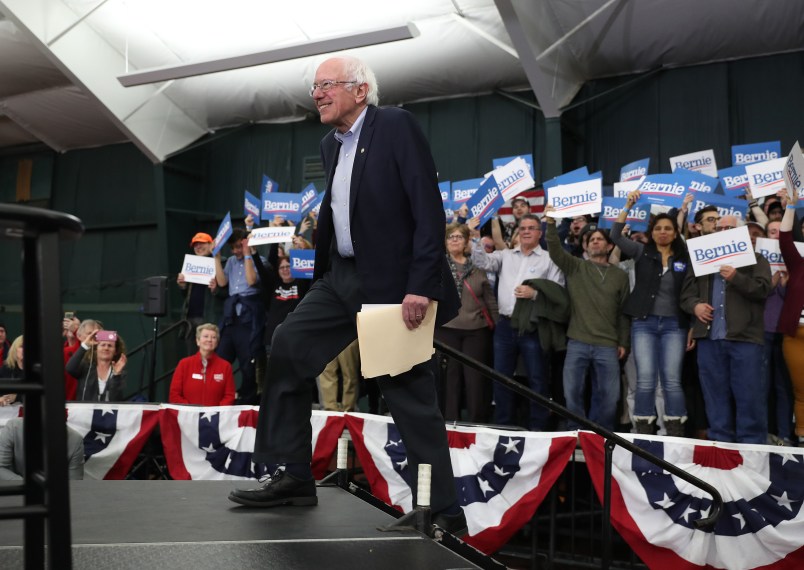Sen. Bernie Sanders (I-VT) claimed victory in the Iowa caucuses Thursday, three days after the caucuses themselves but before the official final tally of results had been completed by the state’s Democratic Party.
“We won in Iowa because of the unprecedented grassroots effort of our campaign,” Sanders tweeted.
We won in Iowa because of the unprecedented grassroots effort of our campaign.
Thousands of volunteers knocked on hundreds of thousands of doors in the cold and snow.
I want to thank each and every volunteer who participated in that effort.
— Bernie Sanders (@BernieSanders) February 6, 2020
The declaration of victory comes several days after Sanders’ neck-and-neck competitor in Iowa, former South Bend Mayor Pete Buttigieg, delivered a victory speech of his own. At the time, the state had not released any precinct-level results.
Technical issues with an untested app and delays in collecting and verifying caucus data from more than 1,600 voting sites have fogged up the results in Iowa with days of delays.
By midday Thursday, the party had released 97% of precinct data, showing Sanders leading in the state’s popular vote and a too-close-to-call margin between Sanders and Buttigieg in the delegate count from the state.
Also Thursday, Democratic National Committee Chairman Tom Perez called for a recanvass in Iowa. State Democratic Party Chairman Troy Price responded by saying the party was prepared to handle such requests from presidential candidates.
In a press conference Thursday, Sanders said he was claiming victory based on the popular vote in Iowa.
“When 6,000 more people come out for you in an election than your nearest opponent, we here in northern New England call that a victory,” he said, referring to the initial votes cast at the caucuses. Sanders also led, but by a smaller margin, the second round of popular voting at caucus sites.
The “state delegate equivalent” difference between he and Buttigieg, Sanders said, was “meaningless” given how close that tally was with 97% of precincts reporting.
“We are both likely to receive the same number of national delegates to the Democratic National Convention,” Sanders said, adding: “Those national delegates, not the state delegates, are the ones that really matter in the nominating process.”
This post has been updated.







2 candidates declare victory,no certified results by the Iowa Dem Party and the DNC Chair calling for a recanvass. There it is…
Dear Iowa, it is time to get rid of the caucuses and move to a primary. Best of luck to you. This is no longer a story. NH has a primary and the debate is on Friday. Can we move on?
The man who wins the POPULAR vote wins…PERIOD. Delegates. Electors. That’s all just BS designed to overcome an inconvenient truth like BERNIE WINNING. Suck on it, Perez. Suck on it, DNC. Suck on it, Shadow, Inc. The PEOPLE want Bernie.
I am so concerned about Sanders that I am investigating running as a delegate in our district caucuses. My district has a Sanders delegate. That must be opposed.
Let F be the set of all the fucks I give, where
F = { Ø }